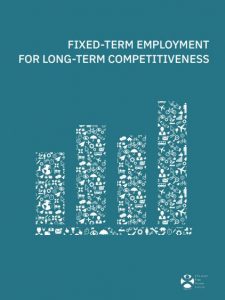 Labor market flexibility may be characterized by the market participants’ abilities to deviate from standard labor regulations and typical forms of employment. Such possibilities may not only provide positive outcomes to both employers and employees, but they may also benefit the whole economy.
Labor market flexibility may be characterized by the market participants’ abilities to deviate from standard labor regulations and typical forms of employment. Such possibilities may not only provide positive outcomes to both employers and employees, but they may also benefit the whole economy.
Atypical employment contracts respond to the needs of both employers and workers, therefore the proliferation of temporary employment and the emergence of new temporary work forms over the past decades at the EU and global level is not surprising. Currently temporary employment constitutes a large share of the labor market suggesting that the issues of both market flexibility enhancement and temporary work are relevant as ever. Even though national regulations broadly conform to the generic concepts of temporary work, the regulations vary significantly across countries.
This report provides an overview of the economic effects of hiring flexibility under atypical employment contracts and a cross country legislative and policy analysis on the flexibility of hiring under atypical contracts with a particular emphasis on employment under agreements of predetermined duration in Bulgaria, the Czech Republic, Estonia, Lithuania, Poland, Slovakia, Denmark, and Switzerland.
Read the full report Fixed-Term Employment for Long-Term Competitiveness.